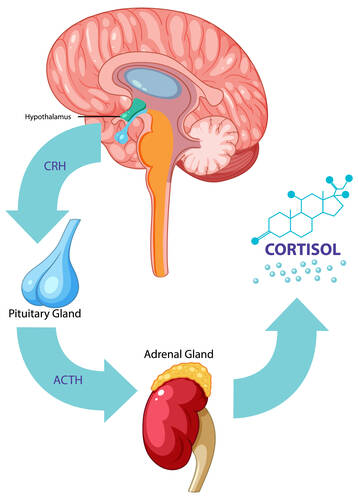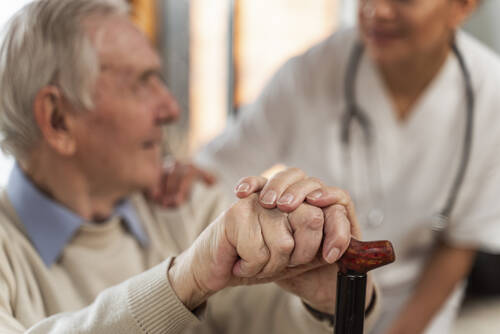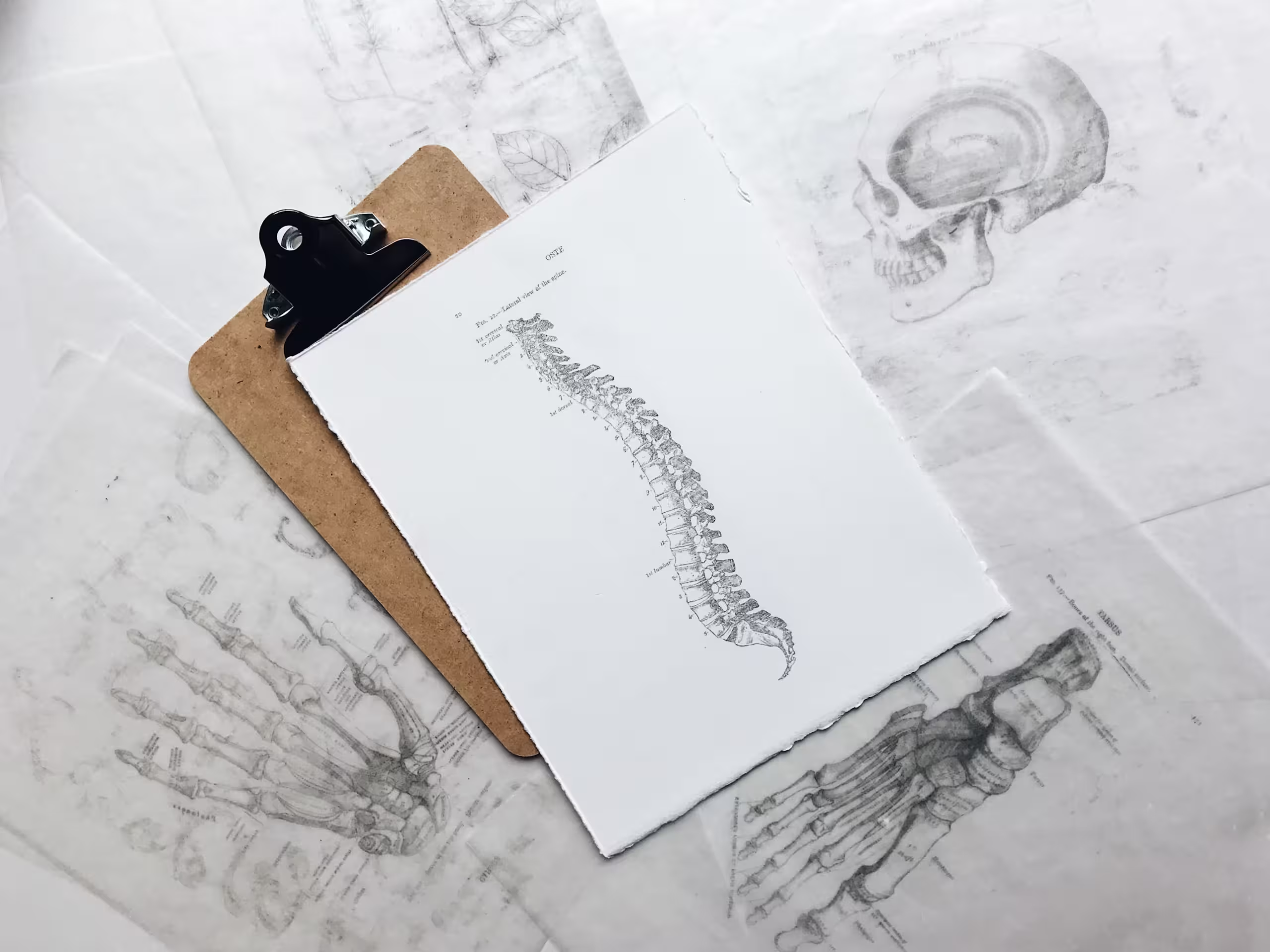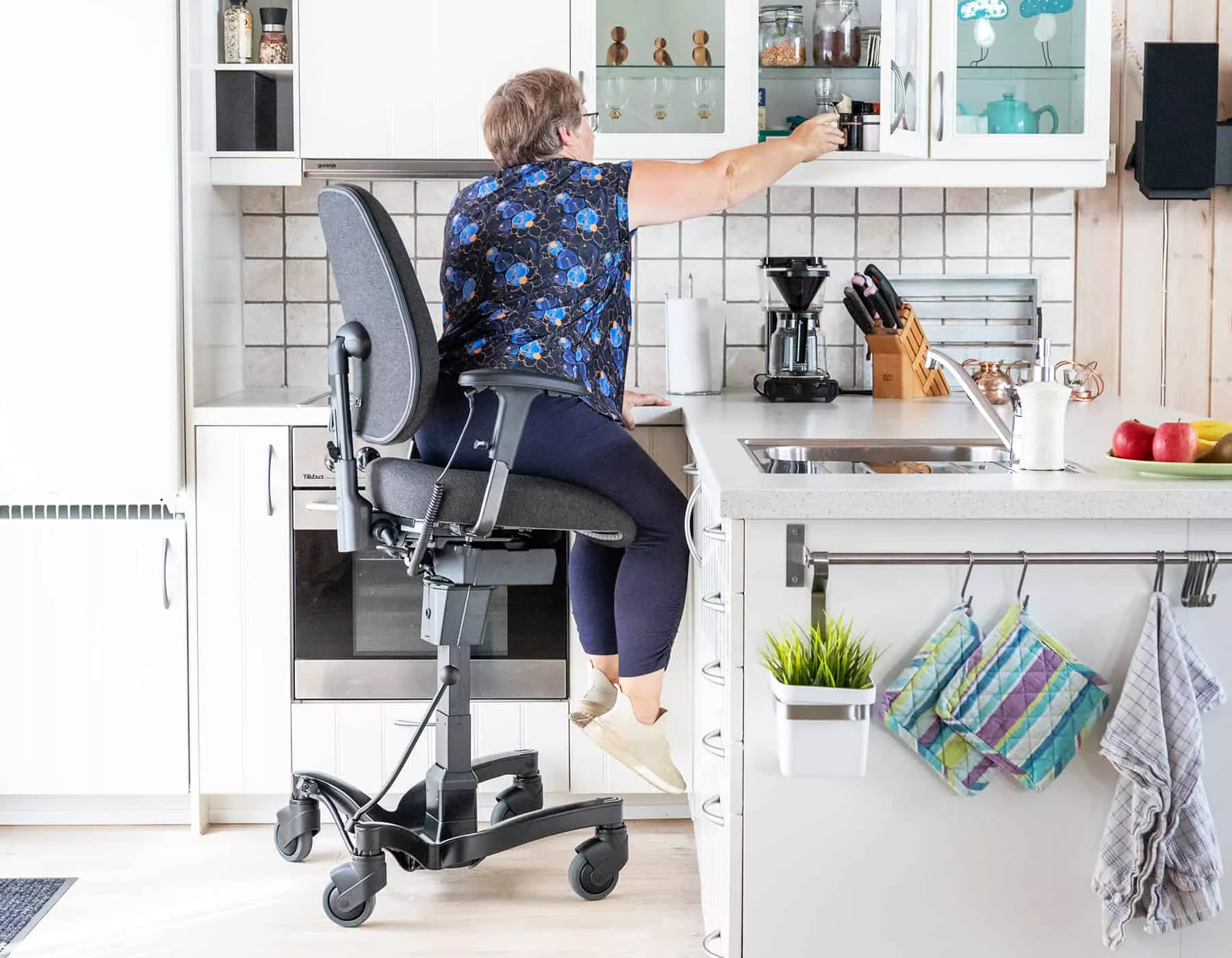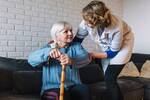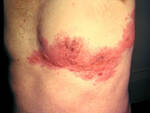The endocrine system is a network of glands that produce and release hormones. These hormones control many vital body functions, including metabolism, growth, and reproduction. As we age, the efficiency of this system declines, leading to various age-related diseases and conditions. Understanding how the endocrine system impacts longevity can help us develop strategies to live longer and healthier lives.
Continuous caregiving can result in physical and emotional exhaustion. Respite care provides a much needed break allowing carers to rest,...
Editor's note: Please consult your health care provider to discuss your personal medical journey.
Most supplements are not FDA tested and may have side effects.
Aging brings numerous physical and mental changes, many of which can be mitigated or managed through regular physical activity.
Exercise is not just about maintaining a healthy weight or looking fit; it plays a crucial role in reducing the risk of age-related health concerns such as heart disease, diabetes, osteoporosis, and cognitive decline.
It also boosts energy levels, strengthens the immune system, and promotes better mental health by reducing stress and enhancing mood.
Whether you're in your 50s, 60s, or beyond, incorporating appropriate exercises into your routine can significantly enhance your quality of life and overall well-being, fostering independence and vitality.
(more…)
Aging, Supplements / 18.11.2024
The Anti-Aging Molecule Debuted on the Joe Rogan Podcast: NMN and the Science Behind It
Editor’s note: NADH is not the same as niacin, niacinamide, or nicotinamide riboside.
Please discuss the use of NAD⁺ with your health care provider before use and if you are taking long term. NAD⁺ supplements are not FDA tested and may vary between formulations. There are no studies of NAD⁺ in children, pregnancy, breast feeding or those planning to become pregnant. The efficacy and long term safety of NAD⁺ has not been definitively determined. Products discussed have not been independently verified.
In the ever-growing world of longevity research, one name that has gained significant attention is Nicotine Mononucleotide (NMN). This compound, once considered just a minor player in biochemistry, has become the focal point of discussions about aging, healthspan, and the potential to reverse age-related cellular decline.
Dr. David Sinclair, a leading scientist in the field of aging and professor at Harvard Medical School, debuted NMN to a wider audience during his appearance on the Joe Rogan Experience podcast. Since then, interest in NMN has skyrocketed, with many wondering: Can this molecule really slow down or even reverse the aging process?
In this article, we’ll delve into the science behind NMN, explore its potential as an anti-aging molecule, and discuss how you can incorporate it into your daily routine.
What is NMN?
Nicotinamide Mononucleotide (NMN) is a naturally occurring compound found in all living cells. It is a derivative of niacin (Vitamin B3) and plays a crucial role in the production of Nicotinamide Adenine Dinucleotide (NAD+), a coenzyme that is essential for life. NAD+ is involved in numerous fundamental cellular processes, including energy production, DNA repair, and maintenance of cellular health. However, as we age, our NAD+ levels decline, leading to a range of cellular dysfunctions that contribute to aging and age-related diseases. Dr. David Sinclair, in his extensive research on aging, discovered that boosting NAD+ levels could have profound implications for slowing down the aging process. Since NMN is a direct precursor to NAD+, it is believed that supplementing with NMN could effectively restore NAD+ levels and support the body’s natural repair mechanisms. (more…)
Geriatrics, Social Issues / 09.11.2024
Empowering Seniors: Tips for Community Engagement and Support
Key Takeaways
- Learn practical ways to support seniors, focusing on engagement, safety, and well-being.
- Understand the impact of community involvement on seniors' mental and physical health.
- Discover practical tips for fostering a supportive and inclusive community for elderly individuals.
- Understanding the Needs of Seniors
- Creating a Safe Environment
- The Role of Social Activities
- Encouraging Physical Wellness
- Importance of Nutrition
- Utilizing Technology for Connection
- Benefits of Intergenerational Programs
- Leveraging Community Resources
Aging is a journey—one that comes with many ups, a few downs, and a whole lot of changes in how the body feels and functions.
Waking up with stiffness or dealing with aches after a simple walk also becomes common. And while that might feel like an inevitable part of aging, it doesn’t necessarily have to be. Just because you’re aging doesn’t mean you should settle for constant discomfort.
Medicines and supplements are often the go-to for seniors dealing with age-related issues. But these just mask the symptoms rather than addressing the root cause.
Chiropractic care, however, is a powerful, natural way to boost your well-being as you age. It is not just about back cracking and neck adjustments; it’s about keeping your whole body moving freely, reducing pain, and making day-to-day activities easier.
Here are some of the top ways chiropractic care can make a difference:
#1 Improves Joint Function
Nearly 60% of people over 50 have some form of arthritis. The University of Michigan National Poll on Healthy Aging has revealed this. Arthritis, an often inevitable part of aging, can make even the simplest movements uncomfortable. Popping pills might provide relief, but only for a short period of time. Chiropractors can be of big help in keeping joints moving smoothly. They adjust the spine and other joints to relieve tension and restore natural alignment. These adjustments increase blood flow and improve joint mobility, which makes movement smoother and less painful. Moreover, many chiropractors go beyond adjustments; they recommend specific stretches and exercises that support healthy joints. (more…)
Lift chairs are an essential addition for seniors who need a bit of extra support in their daily lives. These specially designed chairs gently lift and lower, making it easier to sit down or stand up without straining muscles or joints.
For those dealing with arthritis, back pain, or balance issues, a lift chair can be much more than just a comfortable seat—it’s a practical aid that supports health and independence. Here’s a closer look at how lift chairs work, the health benefits they offer, and tips for choosing the right one.
How Lift Chairs Make Life Easier
Lift chairs, often called "chairs that lift for seniors," are recliners equipped with a motorized function that raises and tilts the seat forward. With the push of a button, the chair moves smoothly to help users stand up or sit down with minimal effort. This technology is especially helpful for anyone with limited mobility, allowing them to move safely and independently. (more…)
Nursing homes of a high standard can have great benefits for residents. When selecting a nursing home or rehabilitation center, families often rely on facility ratings to evaluate the quality of care provided. Understanding the ratings associated with nursing homes can offer insights into the quality of care residents receive, helping families make well-informed decisions.
Key Aspects of Ratings for Nursing Homes
Nursing home ratings typically cover several essential areas of care, including staffing, safety, and resident satisfaction. The high Casa de Oro Center ratings reflect its commitment to providing a safe, supportive, and nurturing environment for residents. Families evaluating this facility should consider the following aspects:- Staffing and Responsiveness: Adequate staffing is crucial for delivering timely and effective care. High ratings in this area indicate that the nursing home maintains sufficient staff-to-resident ratios, ensuring residents receive the attention and assistance they need promptly.
- Safety and Hygiene Protocols: High safety ratings signify the facility’s adherence to strict hygiene protocols, which are essential in preventing the spread of infections and protecting residents’ health.
- Resident Satisfaction: Feedback from residents and their families plays a significant role in overall ratings. High satisfaction scores suggest that residents feel comfortable, valued, and well-supported, contributing to their emotional well-being and overall quality of life.
As people age, maintaining independence becomes one of the most important goals for seniors and their families. The ability to live comfortably in their own homes while receiving the necessary support is a crucial aspect of aging with dignity. Personal care assistants (PCAs) play a vital role in helping elderly individuals maintain their independence, ensuring they receive the right balance of assistance and freedom. In this article, we will explore why personal care assistants are so important for elderly independence, how they contribute to a better quality of life, and why more families are turning to them for support.
1. The Balance of Support and Freedom
One of the greatest challenges that seniors face as they age is finding the right balance between needing help and maintaining their independence. Many elderly individuals can manage their daily activities but require some assistance with specific tasks. This is where personal care assistants come in. They provide help with daily tasks without taking away a senior’s sense of autonomy. Personal care assistant duties include:- Bathing and grooming
- Dressing
- Medication management
- Light housekeeping
- Meal preparation
- Mobility assistance
Addiction, Aging, Pain Research / 29.09.2024
Why Older Adults are Using Drugs to Excess and How We Can Help Them
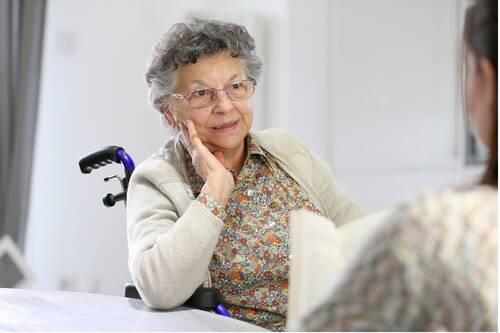 Most news stories tend to focus on how drugs and the opioid epidemic are impacting people in their teens and early adulthood. However, I can tell you from personal experience, that there are a lot of older adults who are also abusing drugs alcohol at record rates. This is borne out at our family’s drug treatment program which I founded and run in San Diego, California.
You may be surprised to hear that the rates of opioid overdose in the U.S. have increased the most among people ages 65 and up (from 2021 to 2022) and that older adults have seen the greatest increase in cannabis use in Canada. One thing you also may not realize is that older adults have the highest recovery rates of all age groups.
(more…)
Most news stories tend to focus on how drugs and the opioid epidemic are impacting people in their teens and early adulthood. However, I can tell you from personal experience, that there are a lot of older adults who are also abusing drugs alcohol at record rates. This is borne out at our family’s drug treatment program which I founded and run in San Diego, California.
You may be surprised to hear that the rates of opioid overdose in the U.S. have increased the most among people ages 65 and up (from 2021 to 2022) and that older adults have seen the greatest increase in cannabis use in Canada. One thing you also may not realize is that older adults have the highest recovery rates of all age groups.
(more…)
As we get older, managing our health becomes even more important. Aging can bring new health challenges, from needing to manage multiple medications to maintaining physical activity and mental sharpness. Having a clear plan for health management is essential to help older individuals stay active, healthy, and independent. Proper attention to medications, diet, exercise, and regular check-ups enable older adults to maintain a good quality of life.
Health management doesn't have to be complicated. Simple steps, like regular doctor visits, staying on top of medications, and eating well, can make a big difference.
This guide will cover practical strategies to help older individuals take control of their health, stay active, and enjoy life to the fullest.
(more…)
Choosing the right nursing care facility for a loved one is an important decision that requires thorough evaluation and thoughtful planning. Whether for short-term rehabilitation or long-term care, finding a facility that meets both medical needs and emotional well-being is crucial. Here are some key steps to help guide your decision-making process.
Determine Your Loved One’s Care Requirements
Start by identifying the specific needs of your loved one. This includes their current medical conditions, level of mobility, dietary preferences, and any special needs like regular medication or therapeutic support. Having a clear picture of these requirements will help you identify the most suitable care setting. When evaluating potential facilities, you can find detailed information and compare different options for nursing care services with careforfamily.com.au to help guide your decision. (more…)
Aging, Author Interviews, BMJ, Heart Disease, Statins / 11.09.2024
BMJ: Study Finds Lifetime Statin Use Likely to Improve Years Lived in Good Health
MedicalResearch.com Interview with:
Borislava Mihaylova, DPhil
Associate Professor & Senior Health Economist
Nuffield Department of Population Health, University of Oxford,
UK & Professor of Health Economics
Wolfson Institute of Population Health
Queen Mary University of London, UK
MedicalResearch.com: What is the background for this study?
Response: Despite high risks of heart disease and stroke in people over 70 years old and high need for preventive treatment such as statins, fewer older people use statins [compared to middle-aged people]. This, at least in part, is likely due to fewer older people, particularly those without previous heart attacks and strokes, included in the randomized studies of statin treatment. This has led to more limited evidence among them with larger uncertainty. Thus, we set to re-examine the value of statin treatment using the latest evidence and contemporary population data.
(more…)
As we continue to live in a world where technology is advancing day by day, its impact on various aspects of our lives grows ever more significant.
As much as we believe that the elderly are so far untouched, the new age interactive use of technology has not only brought seniors close to use of gadgets, but interestingly they are engaging and entertaining.
By adopting various digital tools and platforms, seniors can maintain their independence, stay connected with loved ones, and manage their physical and mental health more effectively.
This article explores how seniors can use technology to enhance their health and well-being and provides practical tips on incorporating these innovations into their daily lives.
(more…)
One area where technology is making a profound difference is in the health and well-being of seniors, with innovations such as telemedicine Colorado offering accessible healthcare solutions.
Aging, Geriatrics / 31.07.2024
Maintaining Physical and Mental Health in Old Age
As lifespans extend, the pursuit of a fulfilling and independent later life becomes increasingly important. A holistic approach to aging, encompassing both physical and mental well-being, is essential for thriving in these years. By understanding the challenges and opportunities of older age, individuals can make informed choices to optimize their health and happiness.
The Importance of Physical Health
Physical activity is a cornerstone of healthy aging. Tailored exercise routines that incorporate strength training, balance exercises, and cardiovascular workouts can significantly enhance quality of life. Regular physical activity not only improves mobility and prevents falls but also reduces the risk of chronic diseases such as heart disease, diabetes, and osteoporosis. Nutrition plays a vital role in supporting overall health. A balanced diet rich in fruits, vegetables, whole grains, and lean protein provides essential nutrients for bodily functions. Staying hydrated is equally crucial for maintaining optimal health. Regular medical check-ups and preventive care are indispensable for early detection and management of potential health concerns. (more…)
Exercise - Fitness, Mental Health Research / 10.07.2024
A Senior’s Guide to Getting Started with Meditation
Meditation, an ancient practice, has become more popular in recent years, largely due to its myriad health benefits.
For seniors, meditation holds significant value. According to the Cleveland Clinic, it provides a natural method to manage stress, enhance mental clarity, and improve overall well-being. The National Institute on Aging emphasizes that as we age, maintaining both physical and mental health becomes increasingly crucial. Meditation serves as a simple yet effective tool to support these goals.
WebMD reports that meditation can help seniors sleep better. This practice can also help deal with symptoms associated with depression.
If you're a senior looking to get started with meditation, here are a few expert tips to help you out.
 Meditation, as explained by Mayo Clinic, has been shown to reduce stress, lower blood pressure, and improve sleep quality. For seniors, these benefits are particularly significant as they can help manage chronic conditions and promote a sense of calm and relaxation.
Regular meditation practice can also enhance focus and cognitive function, which can be beneficial in maintaining mental sharpness as one ages. Furthermore, meditation promotes inner peace and enhances emotional health, thereby contributing to an improved overall quality of life.
(more…)
Meditation, as explained by Mayo Clinic, has been shown to reduce stress, lower blood pressure, and improve sleep quality. For seniors, these benefits are particularly significant as they can help manage chronic conditions and promote a sense of calm and relaxation.
Regular meditation practice can also enhance focus and cognitive function, which can be beneficial in maintaining mental sharpness as one ages. Furthermore, meditation promotes inner peace and enhances emotional health, thereby contributing to an improved overall quality of life.
(more…)
Understanding the Benefits of Meditation
 Meditation, as explained by Mayo Clinic, has been shown to reduce stress, lower blood pressure, and improve sleep quality. For seniors, these benefits are particularly significant as they can help manage chronic conditions and promote a sense of calm and relaxation.
Regular meditation practice can also enhance focus and cognitive function, which can be beneficial in maintaining mental sharpness as one ages. Furthermore, meditation promotes inner peace and enhances emotional health, thereby contributing to an improved overall quality of life.
(more…)
Meditation, as explained by Mayo Clinic, has been shown to reduce stress, lower blood pressure, and improve sleep quality. For seniors, these benefits are particularly significant as they can help manage chronic conditions and promote a sense of calm and relaxation.
Regular meditation practice can also enhance focus and cognitive function, which can be beneficial in maintaining mental sharpness as one ages. Furthermore, meditation promotes inner peace and enhances emotional health, thereby contributing to an improved overall quality of life.
(more…)
Aging, Gastrointestinal Disease, Geriatrics / 02.07.2024
Senior Health Care: Adapting to Life with an Ostomy
Joining a local ostomy support group can be incredibly helpful by sharing tips and tricks for living with an ostomy....
Aging, Geriatrics, Nursing / 15.06.2024
The Different Forms of Nursing Home Abuse You Should Know About
Nursing homes are supposed to be safe places where elderly people receive the care they need. Unfortunately, this isn't always the case. Nursing home abuse is a serious issue that affects many seniors. According to the National Center on Elder Abuse, about 10% of elderly people experience some form of abuse in nursing homes.
If you suspect abuse, take action quickly and seek help from nursing home abuse attorneys to ensure your loved one receives the care and respect they deserve. No one should have to suffer in silence, and with the right support, you can ensure that your loved one receives the care and respect they deserve.
Read on for a few of the most common nursing home abuses you should know about.
Physical Abuse
Physical abuse is one of the most common forms of nursing home abuse. It involves any act that causes physical harm to a resident. Signs of physical abuse may include unexplained bruises, cuts, broken bones, or other injuries. Examples of Physical Abuse:- Hitting or slapping a resident
- Shoving or pushing
- Restraining a resident with straps or ties
- Not providing necessary medical care
Accidents & Violence, Aging, Technology / 11.06.2024
Why It’s Important to Have Fall Detection for Your Medical Alert Systems: Enhancing Safety and Quick Response
Falls are one of the leading causes of injury among older adults, making the availability of fall detection in medical alert systems essential. Having a medical alert system with fall detection can provide peace of mind, knowing that help will be on the way even if you can't push a button. This feature can be particularly critical in emergencies where immediate assistance can significantly affect outcomes. This article takes you through the reasons why having a fall detection system is an essential add-on to your medical alert system.
Fall detection technology relies on advanced sensors and algorithms to ensure timely assistance when a fall occurs. This technology is built into various wearable devices, offering accuracy and reliability in monitoring movements and detecting falls.
 Fall Detection Technology
Fall Detection Technology
Fall detection technology relies on advanced sensors and algorithms to ensure timely assistance when a fall occurs. This technology is built into various wearable devices, offering accuracy and reliability in monitoring movements and detecting falls.
How Fall Detection Works
Fall detection systems typically use accelerometers and gyroscopes embedded within the device to monitor movement patterns. When a fall is detected, the device triggers an alert, contacting emergency services or a designated caregiver automatically. These systems measure changes in speed and orientation to identify sudden impacts. They provide a vital safety net for individuals who might not be able to manually signal for help following a fall. (more…)
Aging, Author Interviews, Exercise - Fitness, JAMA, USPSTF / 10.06.2024
USPSTF: Health Care Professionals Should Recommend Exercise for Seniors at Risk of Falls
MedicalResearch.com Interview with:
Li Li, M.D., Ph.D., M.P.H
Walter M. Seward Professor
Chair of Family Medicine
Director of population health
University of Virginia School of Medicine
Editor-in-chief of The BMJ Family Medicine
Dr. Li joined the U.S. Preventive Services Task Force in January 2021
MedicalResearch.com: What is the background for this study? What are the main findings of the underlying studies?
Response: Falls are the leading cause of injuries in older adults and can lead to serious disability and even death. To help prevent these incidents, the Task Force looked at the current evidence on ways that primary care clinicians can help prevent falls in adults aged 65 and older who live at home and are more likely to fall.
We concluded that healthcare professionals should recommend exercise interventions for adults aged 65 and older who are at increased risk for falls. This could include gait, balance, and functional training, as well as strength, resistance, and flexibility training. Clinicians can also talk with their older patients who are most likely to fall about whether additional interventions might be helpful to reduce their risk of falling.
(more…)
Our skin is subject to a multitude of internal and external influences that can affect its thickness and texture over time. Factors such as aging, environmental aggressors, lifestyle choices, and genetics can contribute to the gradual thinning and deterioration of skin quality. However, the good news is that there are various approaches to address these concerns and promote the restoration of skin thickness and texture.
In this article, we'll explore a few crucial factors that, according to research, play pivotal roles in this rejuvenation process.
 According to the National Institutes of Health, at the core of skin thickness and texture restoration lies the process of cell proliferation and migration. The epidermis, the outermost layer of the skin, constantly undergoes renewal through a process known as epidermal turnover.
Stem cells within the basal layer of the epidermis divide and differentiate into keratinocytes. These gradually migrate upward to the skin's surface, replacing old, damaged cells.
According to Beyond CellCare, stem cell therapy differs from traditional treatments, which only target the symptoms of skin aging. By fostering cellular repair and renewal, it targets the fundamental mechanisms of aging.
Furthermore, certain skincare ingredients and treatments, such as chemical exfoliants and professional procedures like microdermabrasion and chemical peels, can accelerate cell turnover.
You’ll also find the use of exosome injection and similar therapy methods involving exosomes becoming popular in this regard. Exosomes facilitate skin cell proliferation and migration by transferring growth factors and signaling molecules.
(Please note that exosomes are currently not approved by the Food and Drug Administration (FDA) to treat or diagnose any disease).
(more…)
According to the National Institutes of Health, at the core of skin thickness and texture restoration lies the process of cell proliferation and migration. The epidermis, the outermost layer of the skin, constantly undergoes renewal through a process known as epidermal turnover.
Stem cells within the basal layer of the epidermis divide and differentiate into keratinocytes. These gradually migrate upward to the skin's surface, replacing old, damaged cells.
According to Beyond CellCare, stem cell therapy differs from traditional treatments, which only target the symptoms of skin aging. By fostering cellular repair and renewal, it targets the fundamental mechanisms of aging.
Furthermore, certain skincare ingredients and treatments, such as chemical exfoliants and professional procedures like microdermabrasion and chemical peels, can accelerate cell turnover.
You’ll also find the use of exosome injection and similar therapy methods involving exosomes becoming popular in this regard. Exosomes facilitate skin cell proliferation and migration by transferring growth factors and signaling molecules.
(Please note that exosomes are currently not approved by the Food and Drug Administration (FDA) to treat or diagnose any disease).
(more…)
The Proliferation and Migration of Skin Cells
 According to the National Institutes of Health, at the core of skin thickness and texture restoration lies the process of cell proliferation and migration. The epidermis, the outermost layer of the skin, constantly undergoes renewal through a process known as epidermal turnover.
Stem cells within the basal layer of the epidermis divide and differentiate into keratinocytes. These gradually migrate upward to the skin's surface, replacing old, damaged cells.
According to Beyond CellCare, stem cell therapy differs from traditional treatments, which only target the symptoms of skin aging. By fostering cellular repair and renewal, it targets the fundamental mechanisms of aging.
Furthermore, certain skincare ingredients and treatments, such as chemical exfoliants and professional procedures like microdermabrasion and chemical peels, can accelerate cell turnover.
You’ll also find the use of exosome injection and similar therapy methods involving exosomes becoming popular in this regard. Exosomes facilitate skin cell proliferation and migration by transferring growth factors and signaling molecules.
(Please note that exosomes are currently not approved by the Food and Drug Administration (FDA) to treat or diagnose any disease).
(more…)
According to the National Institutes of Health, at the core of skin thickness and texture restoration lies the process of cell proliferation and migration. The epidermis, the outermost layer of the skin, constantly undergoes renewal through a process known as epidermal turnover.
Stem cells within the basal layer of the epidermis divide and differentiate into keratinocytes. These gradually migrate upward to the skin's surface, replacing old, damaged cells.
According to Beyond CellCare, stem cell therapy differs from traditional treatments, which only target the symptoms of skin aging. By fostering cellular repair and renewal, it targets the fundamental mechanisms of aging.
Furthermore, certain skincare ingredients and treatments, such as chemical exfoliants and professional procedures like microdermabrasion and chemical peels, can accelerate cell turnover.
You’ll also find the use of exosome injection and similar therapy methods involving exosomes becoming popular in this regard. Exosomes facilitate skin cell proliferation and migration by transferring growth factors and signaling molecules.
(Please note that exosomes are currently not approved by the Food and Drug Administration (FDA) to treat or diagnose any disease).
(more…)
Aging, Social Issues / 12.05.2024
The Ultimate Guide to In-Home Senior Care
Supporting a family member to age comfortably at home can range from regular check-ins at a parent's place to aiding a partner in daily tasks like bathing and cooking, along with managing medications and giving injections. No matter the extent of your assistance, the following suggestions can enable your loved one to stay at home comfortably for as long as possible.
Create a plan
Balancing immediate needs with future considerations is crucial. Managing day-to-day tasks alongside medical appointments and medication renewals is essential, all while considering potential challenges related to your loved one's health and age. While you can't predict everything, proactive planning allows for better emergency responses. Don't handle it solo; create a support network with family and friends.- Identify responsibilities and reach agreement. Inquire about each team member's willingness to aid in the person's care. Even those at a distance can manage tasks like bill payments, medication orders, and arranging medical appointments. Collaborate on a strategy with them.
- Assess your own capabilities honestly. Determine what tasks you're comfortable handling. If direct caregiving makes you uneasy, such as assisting with bathing, explore if another team member can take over or discuss the possibility of hiring professional help.
- Document the plan comprehensively. Having a written plan ensures clarity among all team members, including the care recipient, thereby minimizing confusion. Keep in mind that the plan may need adjustments over time; update it accordingly.
Aging, Mental Health Research / 31.01.2024
Unpacking Age Regression: Identifying and Investigating its Influence
 Age regression stands as a captivating psychological occurrence that has piqued the curiosity of scholars, therapists, and individuals alike. It represents a state wherein adults briefly retreat to a more childlike mindset, marked by shifts in conduct, emotions, and cognitive processes. This article delves into the concept of age regression, its telltale signs, and the triggers and catalysts behind it.
Are you or someone you know struggling with age regression and its effects on mental health? Don't walk this path alone. MentalHealth's dedicated professional service can help you understand and cope with age regression, providing you with the support and guidance you need to live life to the fullest. Contact them today to take the first step towards a healthier and happier lifestyle.
(more…)
Age regression stands as a captivating psychological occurrence that has piqued the curiosity of scholars, therapists, and individuals alike. It represents a state wherein adults briefly retreat to a more childlike mindset, marked by shifts in conduct, emotions, and cognitive processes. This article delves into the concept of age regression, its telltale signs, and the triggers and catalysts behind it.
Are you or someone you know struggling with age regression and its effects on mental health? Don't walk this path alone. MentalHealth's dedicated professional service can help you understand and cope with age regression, providing you with the support and guidance you need to live life to the fullest. Contact them today to take the first step towards a healthier and happier lifestyle.
(more…)
Author Interviews, Cognitive Issues, Memory / 07.08.2023
Pleasant Odors Used to Improve Memory Performance in Older Adults
MedicalResearch.com Interview with:
Michael Leon, Professor emeritus
Department of Neurobiology and Behavior
Center for the Neurobiology of Learning and Memory
Institute for Memory Impairments and Neurological Disorders
University of California Irvine MedicalResearch.com: What is the background for this study? What types of aromas were employed? Response: The olfactory system is the only sense to have a direct “superhighway” access to the memory centers of the brain. The other senses can contribute to the health of the memory centers, but they have to take the brain's “side streets” to get there and consequently have much less impact on the health of those centers. If there is olfactory loss for any reason, the memory centers start to deteriorate. Stimulation of those memory centers with odors allows those centers to allow for better memory. We used naturally occurring pleasant odors: rose, orange, eucalyptus, lemon, peppermint, rosemary, and lavender. (more…)
Department of Neurobiology and Behavior
Center for the Neurobiology of Learning and Memory
Institute for Memory Impairments and Neurological Disorders
University of California Irvine MedicalResearch.com: What is the background for this study? What types of aromas were employed? Response: The olfactory system is the only sense to have a direct “superhighway” access to the memory centers of the brain. The other senses can contribute to the health of the memory centers, but they have to take the brain's “side streets” to get there and consequently have much less impact on the health of those centers. If there is olfactory loss for any reason, the memory centers start to deteriorate. Stimulation of those memory centers with odors allows those centers to allow for better memory. We used naturally occurring pleasant odors: rose, orange, eucalyptus, lemon, peppermint, rosemary, and lavender. (more…)
Aging, Author Interviews, Mental Health Research, Sleep Disorders / 02.07.2023
Regular Napping Might Protect Against Some Aging Brain Shrinkage
MedicalResearch.com Interview with:
Valentina Paz, M.Sc Ph.D. Student
Research and teaching assistant
Universidad de la República, UruguayHon. Research Assistant
MRC Unit for Lifelong Health & Ageing
Department of Population Science & Experimental Medicine
Institute of Cardiovascular Science
University College London MedicalResearch.com: What is the background for this study? Response: Prior research indicates that napping can enhance performance on specific cognitive tasks. However, some authors argue that the advantages derived from napping may vary between individuals who frequently have a nap and those who never naps. Furthermore, it remains to be seen whether habitual daytime napping has a positive or negative impact on cognition and the association between napping and brain volume is not well characterized. Therefore, our study aimed to examine whether the association between genetic liability to daytime napping, cognitive function, and brain volumes might be causal using a technic called Mendelian randomization and the UK Biobank.
(more…)
MRC Unit for Lifelong Health & Ageing
Department of Population Science & Experimental Medicine
Institute of Cardiovascular Science
University College London MedicalResearch.com: What is the background for this study? Response: Prior research indicates that napping can enhance performance on specific cognitive tasks. However, some authors argue that the advantages derived from napping may vary between individuals who frequently have a nap and those who never naps. Furthermore, it remains to be seen whether habitual daytime napping has a positive or negative impact on cognition and the association between napping and brain volume is not well characterized. Therefore, our study aimed to examine whether the association between genetic liability to daytime napping, cognitive function, and brain volumes might be causal using a technic called Mendelian randomization and the UK Biobank.
(more…)
Accidents & Violence, Aging, Author Interviews, BMJ, Brain Injury, Brigham & Women's - Harvard, Exercise - Fitness / 15.12.2022
NFL Players Found to Lose About 10 Years of HealthSpan
MedicalResearch.com Interview with:
Rachel Grashow PhD
Research Scientist
Department of Environmental Health
Football Players Health Study at Harvard University
Harvard T.H. Chan School of Public Health
MedicalResearch.com: What is the background for this study?
Response: Anecdotally, we heard from former NFL players that they felt older than their chronological age. At the same time, doctors and medical care providers treating former players also observed that players appeared clinically older in some health domains. These observations motivated us to ask: despite superior fitness and success as young men, are football players experiencing early aging and living with illness and disability for more years than their non-football peers?
(more…)
Aging, Author Interviews, Brigham & Women's - Harvard, Dermatology, Heart Disease, Herpes Viruses, Stroke / 23.11.2022
Herpes Zoster: Persistent Increased Risk of Cardiac Event or Stroke After Shingles
MedicalResearch.com Interview with:|
Sharon G. Curhan, MD, ScM|
Director, CHEARS: The Conservation of Hearing Study
Channing Division of Network Medicine
Department of Medicine
Brigham and Women’s Hospital
Harvard Medical School
Boston, MA 02114
MedicalResearch.com: What is the background for this study?
Response: Herpes zoster, commonly known as “shingles,” is a viral infection that often causes a painful rash. Shingles can occur anywhere on the head or body. Shingles is caused by the varicella zoster virus (VZV), the same virus that causes chickenpox. After a person has chickenpox, the virus stays in their body for the rest of their life. Years and even decades later, the virus may reactivate as shingles. Almost all individuals age 50 years and older in the US have been infected with the varicella zoster virus and therefore they are at risk for shingles.
About 1 in 3 people will develop shingles during their lifetime, and since age is a risk factor for shingles, this number may increase as the population ages. The risk is also higher among individuals of any age who are immunocompromised due to disease or treatment. A number of serious complications can occur when a person develops shingles, such as post-herpetic neuralgia (long-lasting pain), but there was limited information on whether there are other adverse long-term health implications of developing shingles.
There is a growing body of evidence that links VZV, the virus that causes shingles, to vascular disease. VZV vasculopathy may cause damage to blood vessels and increase the risk of stroke or coronary heart disease. Although some previous studies showed a higher risk of stroke or heart attack around the time of the shingles infection, it was not known whether this higher risk persisted in the long term. Therefore, the question we aimed to address in this study was to investigate whether shingles is associated with higher long-term risk of stroke or coronary heart disease.
To address this question, we conducted a prospective longitudinal study in 3 large US cohorts of >200,000 women and men, the Nurses’ Health Study (>79,000 women), the Nurses’ Health Study II (almost 94,000 women) and the Health Professionals Follow-Up Study (>31,000 men), without a prior history of stroke or coronary heart disease. We collected information on shingles, stroke and coronary heart disease on biennial questionnaires and confirmed the diagnoses with medical record review. We followed the participants for up to 16 years and evaluated whether those who had developed shingles were at higher risk for stroke or coronary heart disease years after the shingles episode. The outcomes we measured were incident stroke, incident coronary heart disease [defined as having a non-fatal or fatal myocardial infarction (heart attack) or a coronary revascularization procedure (CABG, coronary artery bypass graft or percutaneous transluminal coronary angioplasty)]. We also evaluated a combined outcome of cardiovascular disease, which included either stroke or coronary heart disease, whichever came first.
(more…)
Aging, Author Interviews, JAMA, Menopause, USPSTF / 09.11.2022
USPSTF: Hormone Therapy Not Recommended to Prevent Chronic Health Problems After Menopause
MedicalResearch.com Interview with:
James Stevermer, M.D., M.S.P.H.
Vice chair for clinical affairs
Professor of family and community medicine
University of Missouri
Medical director of MU Health Care Family Medicine–Callaway Physicians,
Dr. Stevermer joined the U.S. Preventive Service Task Force in January 2021.
MedicalResearch.com: What is the background for this study? What are the main findings?
Response: As people get older, they are more at risk for many chronic conditions like heart disease, osteoporosis, cancer, and diabetes. It’s unclear how much menopause—which typically occurs around age 50—contributes to this risk. Although we all want to stay healthy as we age, the Task Force does not recommend that people who have already gone through menopause use hormone therapy to prevent chronic health problems.
(more…)
Aging, Geriatrics, Social Issues / 04.10.2022
Most Common Health Concerns in the Elderly
If you have aging parents, the one thing you will want to be aware of is the most common health concerns that plague the elderly. While there is no way to definitively say who will suffer from any one of these diseases or conditions, they are most common among the elderly. For this reason, and because the elderly may be prone to memory lapses, it is important that you find a way to communicate with their primary health provider to ensure that everything is as it should be.
With HIPAA in effect, you may need to get their approval to speak with their doctor or if they’ve been declared incompetent, the proper authorization from the courts would be necessary. At any rate, these are the health concerns you should be on the lookout for, as they truly are most prevalent in the elderly.
(more…)
Aging, Author Interviews, Brigham & Women's - Harvard, Frailty, Geriatrics, JAMA / 22.09.2022
Frailty Scores in Elderly Unaffected by Supplemental Omega-3 or Vitamin D
MedicalResearch.com Interview with:
Ariela Orkaby, MD, MPH
Geriatrics & Preventive Cardiology
Associate Epidemiologist
Division of Aging, Brigham and Women's Hospital
Assistant Professor of Medicine, Harvard Medical School
MedicalResearch.com: What is the background for this study?
Response: As the population is living longer, there is increased risk of frailty and vulnerability. Frailty is defined as reduced physiological reserve and decreased ability to cope with even an acute stress. Up to half of adults over the age of 85 are living with frailty and preventative measures are greatly needed. We tested the effect of vitamin D and marine omega-3 fatty acid supplementation on the risk of developing frailty in healthy older adults in the US enrolled in the VITamin D and OmegA-3 TriaL (VITAL) trial.
(more…)
- 1
- 2

